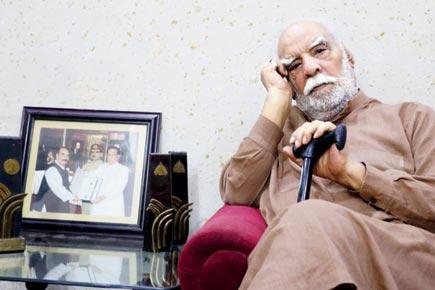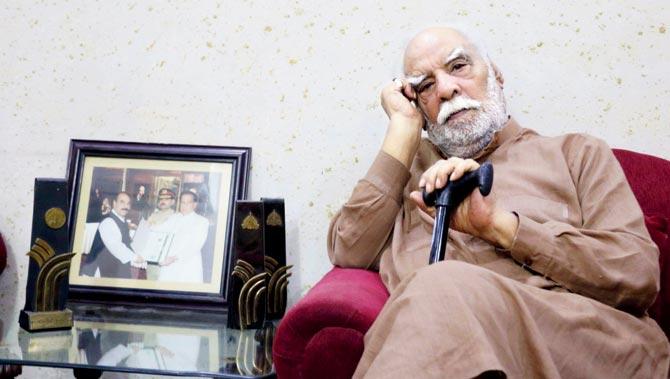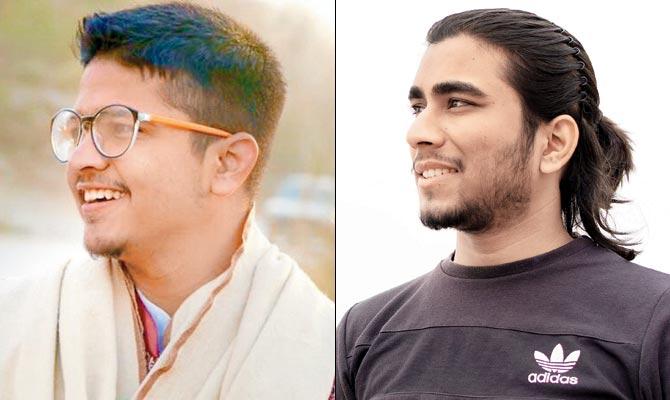An online platform by two students from India and Pakistan, showcases stories of the Partition from those belonging to both countries


ADVERTISEMENT
Faisal Hayat, 19, is in Kashmir. To be specific, he is in Pakistan-occupied Kashmir. The Rawalpindi resident and journalism student is on a mission. He is speaking to octogenarians and nonagenarians and collecting stories about a defining factor in their lives: the Partition of 1947.

Faisal Hayat and Sandeep Dutt
These stories - of lives and love lost, of crossing borders, of battling mobs and living in fear and of building a new life - are part of a Facebook page called Bolti Khidki. Hayat, along with Sandeep Dutt of Ludhiana, started this project three months ago. "The name emerges from the thought that this is the window through which we want the two neighbouring countries to interact," he says. "We are a window that tells stories from both sides; it's not partial to either."
The duo became friends via the Facebook page, Aman ki Asha, over a year ago. The idea came to Dutt when he realised his Urdu teacher, a retired principal, hailed from Pakistan. "I had so many questions. Why don't we know more about these survivors of the Partition? What did they suffer, and how did they overcome it? I posted his story online and people responded to it positively," he says. Dutt connected with Faisal and they decided to share 16 stories, eight from each country, of people who witnessed the Partition.
The page was an instant hit. "Appreciative messages came in, telling us to continue doing such stories," adds Dutt. They started posting in April; an Indian story is shared on Mondays and a Pakistani story is shared every Friday.
The interviews cover each person's pre-Partition, their journey, and their life story post Partition. Dutt cautions that they are just storytellers and aren't trying to sell peace.
The self-funded project comes with its share of difficulties. In Rawalpindi, Hayat's family isn't aware of his work - his friends and the university have refused to help him out of fear. He travels on his own. "It is difficult to convince people here to share their stories. Some will speak, but aren't open to sharing their photos; others are too afraid to even talk," he says. Is he afraid? "Why should I be? We are doing something good," says the Army kid, who runs a shelter for strays in Rawalpindi and hopes to visit India some day. He rues that the Pakistani media isn't covering their work.
Despite the difficulties, the feedback has been positive. "We've had to delete only about five comments from trolls. And we ensure we don't politicise things," he adds.
Bolti Khidki is now a team of five, with IAS teacher Ritika Sharma helping with the translation; graphic designer Rajat Ahuja from Ludhiana and Najam ul Assar, a Lahore-based TedX speaker. The team is engaged in creating a volunteer programme where youth can help find stories. Their target is now 100 stories.
"We want to reach out to the new generation and introduce them to these stories. We want to preserve our history," says Dutt.
Log on to: Bolti Khidki on Facebook
 Subscribe today by clicking the link and stay updated with the latest news!" Click here!
Subscribe today by clicking the link and stay updated with the latest news!" Click here!






